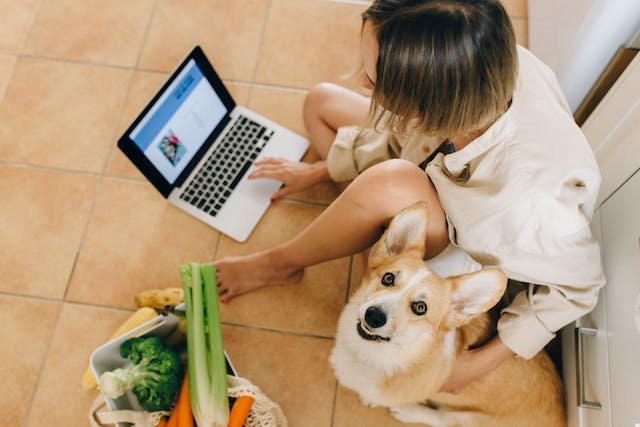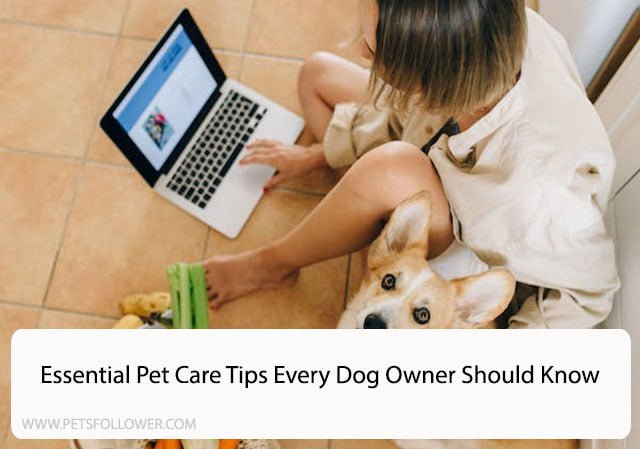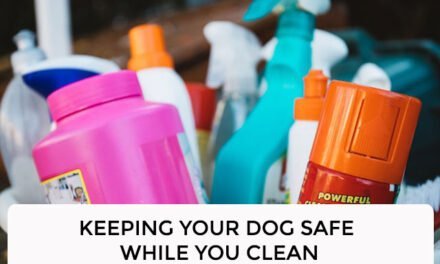Owning a dog brings immense joy and a unique companionship into our lives. However, it also demands a great deal of responsibility. As a dog owner, understanding the needs of your furry friend is crucial for their well-being and your mutual happiness. This guide aims to equip you with essential pet care tips that are vital for every dog owner. From understanding your dog’s breed to the importance of training, these tips will help you create a loving and healthy environment for your pet.

1. Underst.
anding Your Dog’s Breed and Personality
Each dog breed comes with its own set of characteristics and needs. Knowing your dog’s breed can help you understand its exercise requirements, temperament, and potential health issues. For instance, active breeds like Border Collies or Labradors require more physical activity, while breeds like Bulldogs might need less. Similarly, some breeds are prone to specific health issues; Dachshunds, for example, often have back problems. Understanding your dog’s personality is equally important. Just like humans, dogs have individual personalities. Some may be outgoing and adventurous, while others might be shy and reserved. Observing your dog’s reactions to different situations will help you cater to their personality, ensuring they feel secure and happy.
2. The Importance of Regular Cleanup
Maintaining a clean environment is vital for both you and your dog. Regular cleanup reduces the risk of disease and creates a pleasant living space. This includes regular washing of food and water bowls, bedding, and toys. An often-overlooked aspect of cleanliness is dealing with your dog’s waste. Here’s where a dog poop scooping service can be invaluable. These services ensure that your yard or dog’s outdoor space remains clean and hygienic without the hassle of you doing the dirty work. The benefits of a poop scooping service are numerous – they save time, help in maintaining a clean and odor-free yard, and reduce the risk of parasites and bacteria that can affect both your dog and your family’s health. Additionally, these services are especially beneficial for those with physical limitations or busy schedules.
3. Balanced Diet and Nutrition
A balanced diet is fundamental to your dog’s health. Provide a diet that’s appropriate for their age, breed, and energy level. Puppies, adult dogs, and seniors have different nutritional needs. Always opt for high-quality dog food that meets the nutritional standards set by veterinary associations. Be mindful of the human foods that are harmful to dogs, like chocolate, grapes, and onions. Also, keep a check on your dog’s weight to prevent obesity, which can lead to health issues such as diabetes or joint problems. Always have fresh water available, and adjust food portions according to your dog’s exercise level.
4. Regular Veterinary Check-ups
Regular check-ups with a veterinarian are essential in maintaining your dog’s health. These visits are crucial for vaccinations, parasite control, and early detection of any health issues. Your vet can also provide valuable advice on diet, exercise, and general care. Be observant of changes in your dog’s behavior or appearance, as these can be early signs of health problems. Issues like changes in appetite, lethargy, or unusual behavior warrant a visit to the vet. Prevention and early detection are key to managing health issues effectively.
5. Training and Socialization
Training and socialization are critical components of your dog’s development. Proper training helps in managing your dog’s behavior and ensures their safety. Basic commands like sit, stay, come, and heel are essential. Positive reinforcement techniques, such as treats and praises, are effective and strengthen your bond with your pet. Socialization involves exposing your dog to various people, animals, environments, and experiences, ideally from a young age. This exposure helps them become well-adjusted and less fearful in different situations. Regular social interactions can prevent behavioral issues like aggression or fearfulness
6. Grooming and Hygiene
Regular grooming is not just about keeping your dog looking good; it’s crucial for their health. Depending on the breed, your dog’s grooming needs will vary. Long-haired breeds require frequent brushing to prevent matting, while short-haired breeds might need less. Bathing your dog every month or as needed keeps their skin healthy and coat shiny. Remember, using dog-specific shampoos is important to maintain the pH balance of their skin. Nail trimming is another essential aspect of grooming. Overgrown nails can cause discomfort and even injury. If you’re not comfortable doing it yourself, seek a professional groomer or a vet. Dental care is equally important. Regular brushing of your dog’s teeth can prevent gum disease and other oral health issues. Dog-safe toothpaste and toothbrushes are readily available.
7. Ensuring a Safe Environment
Your home should be a safe haven for your dog. Dog-proofing your home involves removing or securing objects that can pose a threat, like toxic plants, small objects they can swallow, and harmful household cleaners. Ensure that your yard or garden is secure to prevent your dog from wandering off. Check for gaps in fences and ensure there are no harmful substances or plants around. Inside the house, create a comfortable space for your dog with their bed, toys, and water bowl. Ensure that the temperature in your home is comfortable for your dog, especially during extreme weather conditions.
8. Mental Stimulation and Play
Mental stimulation is as important as physical exercise. Dogs are intelligent creatures and need regular mental challenges to stay happy and healthy. Puzzle toys, treat-dispensing toys, and regular playtime can keep your dog mentally stimulated. Training sessions are also great for mental exercise. Playtime is not only fun but also a great way to strengthen the bond between you and your dog. Regular play helps to release excess energy, reducing the likelihood of destructive behavior. Remember, the type of play and toys should be appropriate for your dog’s age and physical condition.
9. Dealing with Common Behavioral Issues
Behavioral issues like excessive barking, chewing, and separation anxiety are common in dogs. Understanding the root cause of these behaviors is crucial in addressing them effectively. For instance, chewing can be a sign of teething in puppies or boredom in adult dogs. Providing appropriate chew toys can often resolve this issue. If your dog suffers from separation anxiety, gradual conditioning to being alone, along with comforting toys or clothing, can help. In cases of persistent behavioral issues, consulting a professional dog trainer or behaviorist is advisable. Remember, patience and consistency are key when dealing with behavioral problems.
10. The Power of Love and Attention
Never underestimate the power of love and attention. Dogs thrive on companionship and affection. Regular petting, cuddling, and spending quality time with your dog strengthens your bond and supports their emotional well-being. Dogs are social animals, and neglecting this aspect can lead to issues like depression and anxiety. Positive reinforcement and rewards for good behavior are not only effective in training but also in showing your dog that they are loved and valued. Celebrate their milestones and birthdays, and ensure they’re an integral part of your family.
Conclusion
Caring for a dog is a fulfilling journey that requires dedication and love. By adhering to these essential pet care tips, you ensure that your dog leads a happy, healthy, and well-rounded life. Grooming, ensuring a safe environment, providing mental stimulation, addressing behavioral issues, and giving plenty of love and attention are all crucial aspects of responsible dog ownership. Embrace the joys and challenges of caring for your canine companion, and you’ll discover an unbreakable bond and endless rewards that come with being a dog owner. Remember, a well-cared-for dog brings joy and companionship into your life and also becomes a beloved member of your family.





